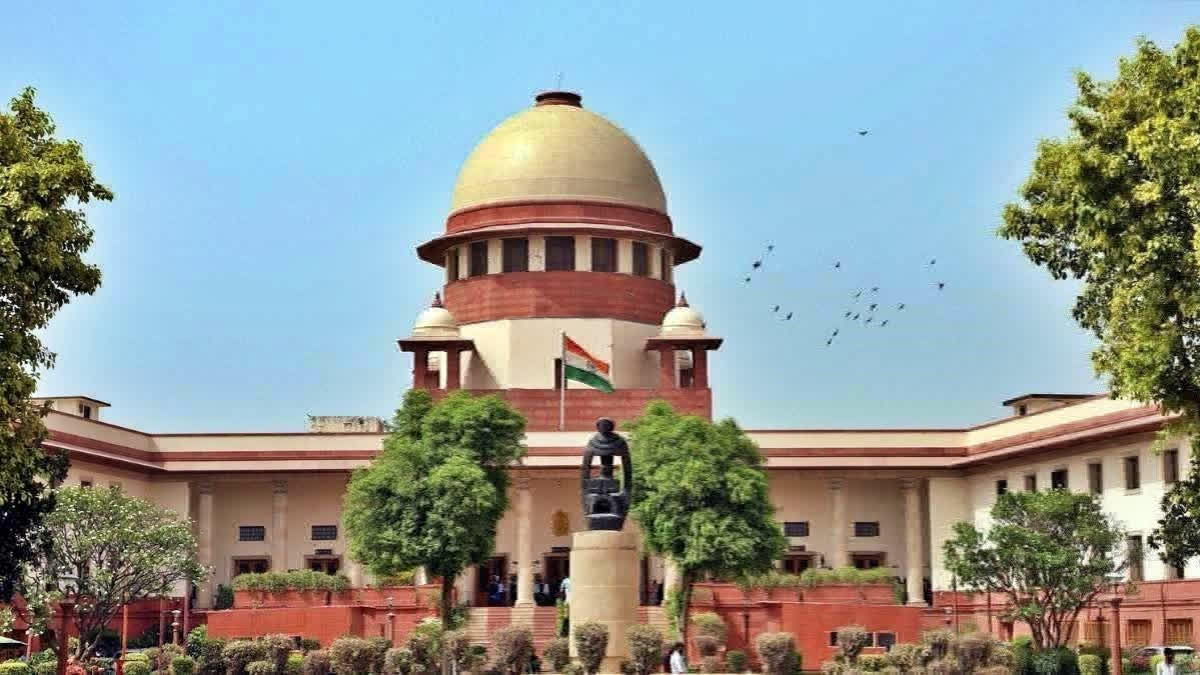New Delhi: The Chief Justice of India D Y Chandrachud said it is not fair to distinguish between a child orphaned due to the Covid-19 pandemic and a child, whose mother or father, had died in an accident, while seeking Centre and all the state governments response on whether Section 2(d) of the Right to Education Act, 2009, which defined the expression "child belonging to disadvantaged groups" could also include orphaned children.
At the beginning of the hearing on Friday, a bench led by Chief Justice of India D Y Chandrachud and comprising Justices J B Pardiwala and Manoj Misra observed that on July 5, 2018, the court had issued notice to the Centre and states on a Public Interest Litigation (PIL) seeking a direction to the Centre to give orphans the same benefits enjoyed by children of minority communities and BPL categories. However, the government has not filed a response so far.
During the hearing in the matter, advocate Prashant Bhushan said the benefits extended to those who were orphaned during the Covid-19 pandemic under the 'PM Cares' scheme should be extended to all orphans. The Chief Justice said the court had flagged that in its order issued on May 1, 2023, on the PIL filed by Poulomi Pavini Shukla and asked Shukla, who was present in the courtroom, to share her suggestion with Additional Solicitor General Vikramjeet Banerjee, so that it can be passed on to the concerned ministry.
The bench sought the Centre’s response on whether benefits given under the PM Cares Fund to children orphaned in the pandemic can be extended to other parentless children.
The petitioner stressed that “it is unfair discriminating how their parents died…..”. The Chief Justice said, “Actually, you are right that it is not fair, maybe they brought out a policy rightly for Covid but now you must extend it to everybody, an orphan is an orphan irrespective of whether the father or mother died in a road accident or by illness….You are attending to the condition, not to the parentage."
The petitioner said, "The larger issue is the right of equality is being denied in various forms to the orphan children…it needs attention of the court”. The Chief Justice said the court would want to know what schemes they have and what they are planning to do, then the court could push the authorities.
Bhushan said, “The benefits given to the economically weaker section (EWS) under the Right to Education Act, that is 20% reservation for EWS in all private schools and that is not being extended to orphans. ….”. Bhushan stressed that the government should address this issue.
The Chief Justice told Banerjee that he would not have to treat this matter like any other matter. ASG said he would take instructions.
The petitioner said the Right to Education Act empowers each state under section 2(d) to notify any other additional children who may be considered weak and eligible for benefits. She said, “Gujarat in 2013 and Delhi in 2015, have done this by simple GO (government order). It does not require a Cabinet note….If other states can be directed to issue the same GO…”.
The ASG said, “I do not think all the states have filed their affidavits”. Bhushan contended that under this they should also include orphans.
Noting Section 2 (d) of the Right to Education Act, the bench observed that the government should consider including orphan children in the child belonging to the disadvantaged groups. The Chief Justice said, “Orphan children are already suffering from social and educational backwardness…..”, and noted that Delhi and Gujarat governments have already issued notification to include them.
The apex court directed the Union of India and all state governments should file their affidavits on the above aspect.
The petitioner said, "The government has not filed an affidavit for five years…when I filed the affidavit I was a student of law and now I have finished law….”. The Chief Justice said “Five years!….we will do something”. Bhushan said the petition is like a PhD dissertation on orphan children and they should respond to all suggestions.
The apex court, in an order passed on May 1, 2020, had said: “Additional Solicitor General, states that the Union government would file a comprehensive affidavit providing an updated status in regard to the diverse schemes of the government which ensure to benefit of orphans. The Additional Solicitor General shall also take instruction on whether the benefit of schemes which were provided for children orphaned during the Covid-19 pandemic can be extended to all orphaned children”.
The order said, "The Additional Solicitor General and the Standing Counsel for the States/UTs shall also take instructions on whether any of the suggestions which have been made by the petitioner can be incorporated while reframing or updating the Schemes".
Also read:Supreme Court seeks response of High Courts, Tribunals on status of virtual hearing



